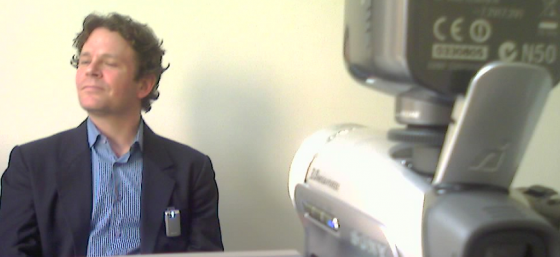
There is an ongoing debate in the state courts about whether bloggers can be protected by the “shield laws.” These are the laws that state that a reporter does not have to reveal the identity of an anonymous news source. The purpose of these laws is to encourage the dissemination of information.
Shield laws are enacted at the state level and are in place in 40 of the 50 States, including Arizona. If you’re a blogger who is sued and you want to use a shield law to protect your source, you usually have to rely on the shield law in the state where you’re being sued, which is not necessarily the state where you live.
So far, the courts in California and New Hampshire ruled that bloggers are protected by their States’ shield laws and the courts in Oregon and Illinois ruled that bloggers are not protected by their States’ shield laws. The verbiage for each State’s shield law is different, and some laws may be worded so narrowly that a court could fairly say that the law cannot apply to bloggers. It is interesting to note that the judge in the Illinois case ruled that bloggers aren’t protected by the shield laws in Illinois or California, and this ruling came down after a California court held that bloggers are protected by the California shield law. We’ll see if the blogger in the Illinois case appeals that ruling.
In general, if you are a blogger who engages in the same activities as a journalist, then you should be protected by the shield laws the same as a journalist. If a person knew of insider trading at a Fortune 500 Company and he gave interviews to the Wall Street Journal and a blogger with a verbal agreement that the writers would not reveal the source of the information, why should a shield law protect the writer from the Wall Street Journal and not the blogger just because the blogger self-publishes?
The courts should not make blanket judgments about whether all bloggers are protected by a shield law. Instead they should make a case-by-case analysis to see if a particular qualifies for protection. Many of the shield laws require regular publication. Based on that requirement, a blogger who only publishes sporadically may not be protected by a shield law.
Arizona has a shield law that states: “A person engaged in newspaper, radio, television or reportorial work, or connected with or employed by a newspaper, radio or television station, shall not be compelled to testify or disclose in a legal proceeding or trial or any proceeding whatever, or before any jury, inquisitorial body or commission, or before a committee of the legislature, or elsewhere, the source of information procured or obtained by him for publication in a newspaper or for broadcasting over a radio or television station with which he was associated or by which he is employed.” I could see a blogger arguing that their blog is reportorial work. The challenge would be convincing a judge or jury that the law should extend to electronic publications, and not just newspapers, TV, and radio.
A court may accept an argument that you’ve made a commitment to protect the anonymity of your sources. There was a case in Maryland in 2009 where a judge did not force a website to reveal the identities of anonymous commenters unless the plaintiff provided evidence to support its claims first. If you have a policy on your blog that states you’ll protect contributors’ anonymity, a court consider that in deciding whether you have to disclose your information source.
The debate over whether bloggers qualify as journalists is not going away anytime soon, and since this is a state law issue, we may remain in this situation where some states protect bloggers under the shield law and others do not. Given that bloggers are accessible everywhere, this issue is likely to get more complicated in the future.